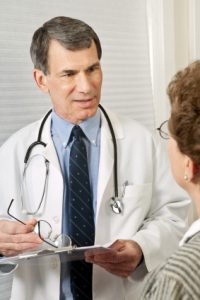Doctor Heidi Cordi Offers Advice to Physicians Considering Volunteering in Disaster Relief
 In times of disaster, many physicians wish to volunteer their time and expertise to help in the recovery effort. It’s in a physician’s nature to want to help those in need, and the aftermath of an disaster can create a significant short-term demand for medical professionals with the training to help victims who need immediate medical attention. Yet, while volunteering on a medical mission can be among the most rewarding experiences of a physician’s career, Heidi Cordi, MD., FACEP, a board member of the American Board of Disaster Medicine® (ABODM), encourages all physicians to do their due diligence before traveling to a disaster site and recently offered advice to medical professionals interested in getting involved.
In times of disaster, many physicians wish to volunteer their time and expertise to help in the recovery effort. It’s in a physician’s nature to want to help those in need, and the aftermath of an disaster can create a significant short-term demand for medical professionals with the training to help victims who need immediate medical attention. Yet, while volunteering on a medical mission can be among the most rewarding experiences of a physician’s career, Heidi Cordi, MD., FACEP, a board member of the American Board of Disaster Medicine® (ABODM), encourages all physicians to do their due diligence before traveling to a disaster site and recently offered advice to medical professionals interested in getting involved.
One of the most important qualities of a disaster relief volunteer is flexibility, Dr. Cordi explains. Because most disasters occur with little warning, disaster relief volunteers must be able to deploy at a moment’s notice. Logistically, this can be problematic. If you are thinking about becoming involved with a disaster relief mission, ask yourself the questions:
- Can you get away from work at a moment’s notice, often with no guaranteed return date?
- Do you have the savings to ensure that your family will be provided for while you’re gone?
- Are you up to date on all of your immunizations to ensure that it’s safe for you to visit a disaster site?
- Do you speak the language of the people who need help?
- Are you prepared to handle the stressful conditions, long hours, and emotional turmoil of a disaster site?
One way to alleviate some of the trepidation that you might have about volunteering is to work with a reputable disaster relief organization. Established medical missions are highly organized and have protocols in place for responding to disasters effectively. Furthermore, the best relief organizations have disaster medicine professionals on staff who know how to manage resources and keep their volunteers safe while providing the best possible care to those in need.
At the American Board of Physician Specialties®, we know how important it is to have physicians who are trained to respond to and manage disaster situations, and we are proud to be the only multi-specialty physician certifying body to offer board certification in disaster medicine, which we do through the ABODM.
To learn more about becoming board certified in disaster medicine and what to consider if you are thinking about volunteering through a disaster relief organization, contact us today. The ABPS is the official board certifying body of the American Association of Physician Specialists, Inc. ®






